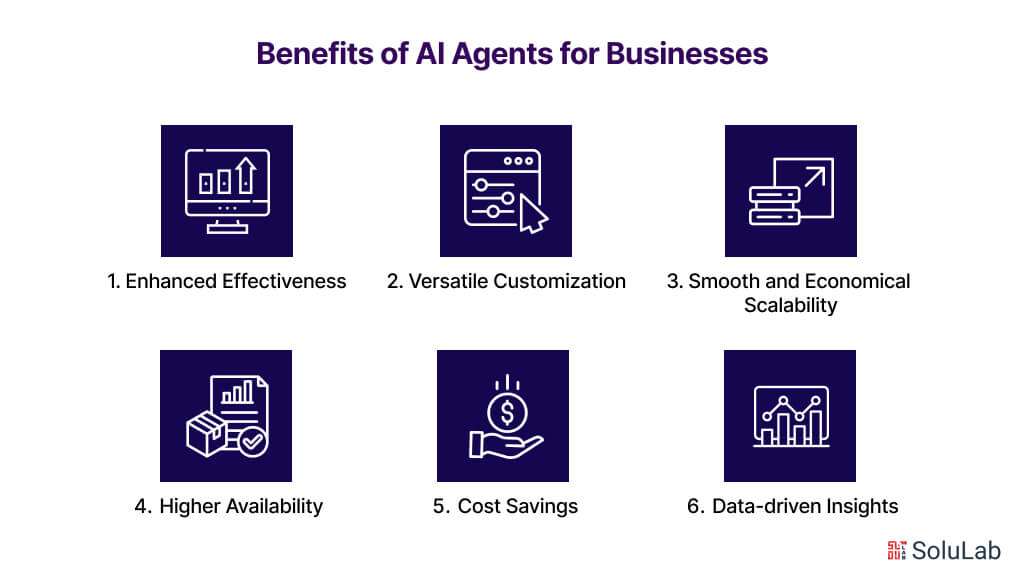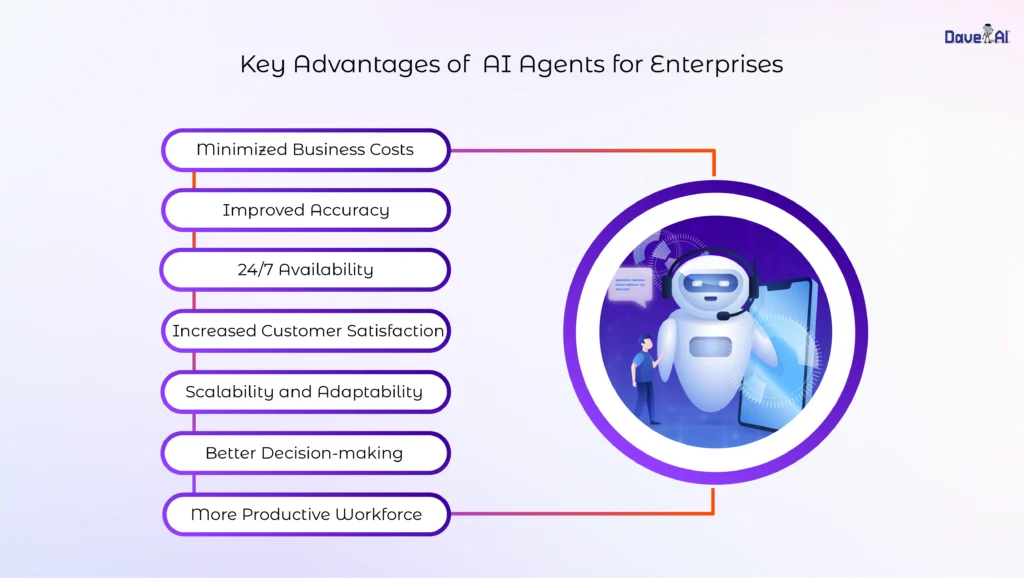Unlocking the Complete Potential of the AI Agents Marketplace: What You Need to Know
The AI agents marketplace offers considerable chances for businesses aiming to boost effectiveness and automation. However, guiding via this landscape requires a strategic method. Companies have to examine their specific needs and identify appropriate AI remedies. As organizations commence this trip, they deal with vital decisions that can form their future. What elements should they prioritize to ensure successful integration and make the most of advantages? Recognizing these components is necessary for making notified options.
Recognizing the AI Agents Marketplace Landscape
As the need for AI options remains to grow, the landscape of the AI agents marketplace has evolved right into a dynamic community. This marketplace includes a varied variety of products and solutions designed to boost automation and efficiency across numerous sectors. Trick gamers consist of established tech companies, startups, and open-source neighborhoods, each adding one-of-a-kind innovations and performances.
The competitive nature of this atmosphere promotes quick improvements, resulting in a range of AI agents customized to particular jobs, from customer solution chatbots to intricate decision-making systems. As services increasingly recognize the value of AI, they look for solutions that offer scalability and integration with existing modern technologies.
Regulatory considerations and moral implications even more shape the marketplace, engaging designers to prioritize transparency and liability. On the whole, the AI agents marketplace remains to expand, driven by technical innovation and an expanding understanding of the transformative potential of fabricated knowledge.
Secret Applications of AI Agents Across Industries
AI agents are changing various markets by automating jobs that improve operational efficiency and decision-making. In the health care industry, AI agents aid in diagnostics and patient administration, improving procedures and improving end results. In money, they analyze market trends and help with trading, enabling quicker and more enlightened financial investment decisions. Retail industries use AI agents for stock monitoring and individualized consumer experiences, enhancing sales techniques and supply turnover.
Manufacturing additionally advantages, with AI agents keeping track of devices and anticipating maintenance requires to reduce downtime. In marketing, they examine consumer habits and automate targeted campaigns, boosting engagement and conversion prices. AI agents play a necessary function in logistics, enhancing supply chains and decreasing costs through clever transmitting and demand projecting. As organizations throughout these industries embrace AI agents, they disclose brand-new levels of productivity and development, placing themselves for future growth and affordable benefit.
Recognizing the Right AI Agents for Your Organization Demands
Exactly how can companies figure out which AI agents align best with their particular needs? To make informed decisions, companies should begin by evaluating their functional objectives and recognizing the specific challenges they encounter. This entails specifying the vital functions that AI agents will certainly support, such as customer care, data evaluation, or process automation.
Once the requirements are clear, companies can discover the marketplace for AI agents customized to those features. They must take into consideration elements such as the representative's abilities, assimilation convenience with existing systems, and flexibility to various workflows. Additionally, assessing study or testimonies from comparable markets can provide insights into effective executions.
Ultimately, consulting with technological experts or conducting pilot examinations can better fine-tune options, guaranteeing that the picked AI agents not just fulfill instant functional requirements but likewise line up with long-lasting tactical objectives. This systematic technique boosts the chance of selecting one of the most reliable AI options.
Examining AI Agents: Metrics and Performance Indicators
Examining the performance of AI agents needs a clear set of metrics and efficiency signs customized to the certain goals of the company (AI Agents Marketplace). Trick metrics often consist of precision, which gauges the agent's capability to offer correct results, and response time, showing the rate at which the representative refines requests. Additionally, user fulfillment scores provide insights into exactly how well the representative satisfies user expectations
Interaction metrics, such as frequency of use and retention prices, can indicate the agent's effectiveness in maintaining user rate of interest. Cost-effectiveness is another essential efficiency indicator, identifying whether the advantages gained from the AI representative warrant its operational expenses.
Lastly, versatility and discovering prices are considerable, as they gauge the agent's capacity to boost over time. With each other, these metrics supply a considerable structure for examining AI agents, enabling organizations to make enlightened decisions regarding their combination and optimization.

Finest Practices for Integrating AI Agents Into Your Procedures
Successful integration of AI agents into procedures requires a tactical approach that aligns with the organization's purposes. Initially, organizations need to this link analyze their particular requirements and identify the areas where AI can include one of the most worth. This requires a detailed evaluation of existing process and procedures to determine inefficiencies.
Next, it is important to pick the best AI agents customized to these demands, making sure compatibility with present systems. Training workers to function together with AI agents boosts acceptance and promotes a joint setting.
Furthermore, organizations must develop clear interaction channels to help with feedback and adjustments, making sure constant renovation of AI capabilities.
Finally, monitoring performance metrics post-implementation permits continuous examination, aiding organizations adjust and optimize their AI methods over time. By adhering to these best techniques, businesses can effectively utilize AI agents to enhance efficiency and accomplish their strategic objectives.
Navigating Moral Considerations in AI Adoption
What honest dilemmas emerge when companies embrace AI innovations? The implementation of AI agents provides different challenges, especially regarding responsibility, openness, and justness. Organizations must come to grips with guaranteeing that their AI systems do not perpetuate predispositions, as algorithms trained on historical data can enhance existing inequalities. Additionally, the opacity of some AI decision-making processes can bring about an absence of responsibility, making it challenging to determine obligation in case of errors or negative outcomes.
Personal privacy issues also emerge, as AI systems often need extensive information collection, questioning about authorization and information protection. Moreover, the possible variation of work because of automation presents moral considerations surrounding workforce impact and economic inequality. Organizations must navigate these intricacies carefully, cultivating an ethical framework that prioritizes civils rights and societal navigate to these guys welfare while making best use of the benefits of AI technologies. By attending to these moral factors to consider, organizations can ensure liable AI fostering.
Future Fads: What to Expect in the AI Agents Marketplace
The AI agents marketplace is positioned for considerable advancement, marked by raised automation abilities that streamline tasks across different markets. Together with this, enhanced customization functions are expected to customize individual experiences better, accommodating individual choices and needs. These fads recommend a future where AI agents come to be indispensable tools for both businesses and customers.
Raised Automation Capabilities
Emerging trends in the AI agents marketplace signal a significant leap in automation capacities, improving industries and process. As AI agents come to be extra sophisticated, they are progressively able to handle intricate tasks with marginal human intervention. This development permits organizations to streamline operations, decrease prices, and improve efficiency. Sectors such as logistics and manufacturing are leveraging AI agents to automate inventory administration and anticipating upkeep, leading to optimized performance. Additionally, the combination of artificial intelligence algorithms equips these agents to gain from previous data, enhancing their effectiveness gradually. As automation comes to be extra prevalent, services can anticipate transformative changes in how they run, paving the way for ingenious services and new competitive advantages in the marketplace.

Improved Personalization Attributes
Exactly how will improved personalization functions reshape individual experiences in the AI agents marketplace? These developments are readied to reinvent exactly how customers interact with AI agents, tailoring services to private preferences and needs. By evaluating customer data and behavior, AI agents will use suggestions and solutions that reverberate more deeply with each user. This shift in the direction of hyper-personalization will certainly not just boost individual fulfillment but additionally foster higher commitment to particular systems. On top of that, the assimilation of feedback devices will allow AI agents to adjust in real-time, making certain that the customer experience continually advances. As these features end up being conventional, the marketplace will likely see raised involvement and retention, driving innovation and competitors among AI programmers to use web the most tailored experiences feasible.
Often Asked Questions

Just how Do I Select the Right AI Representative Vendor?
Picking the right AI agent supplier involves evaluating their know-how, reliability, and customer responses. Assessing the innovation's compatibility with existing systems and comprehending rates models are important steps in making a notified choice.
What Are the Expenses Connected With Releasing AI Agents?
The expenses related to deploying AI agents consist of licensing fees, framework costs, upkeep, training, and prospective integration costs. Organizations must assess these aspects to properly allocate implementation and assure a successful deployment technique.
Can AI Agents Be Custom-made for Particular Company Requirements?
AI agents can indeed be tailored to fulfill specific organization needs, enabling organizations to tailor capabilities and performance - AI Agents Marketplace. This flexibility enhances functional performance, addresses one-of-a-kind difficulties, and promotes innovation in numerous fields and markets
Just how Do I Ensure Information Personal Privacy With AI Agents?
To guarantee information privacy with AI agents, organizations must carry out durable encryption, establish clear information taking care of policies, carry out normal audits, and utilize anonymization techniques to shield sensitive information during handling and storage.
What Support Alternatives Are Offered After AI Representative Implementation?
After applying AI agents, organizations usually have access to different assistance alternatives, including technical support, user training, and regular updates. These resources guarantee smooth operation and assistance address any kind of obstacles that might emerge post-implementation.